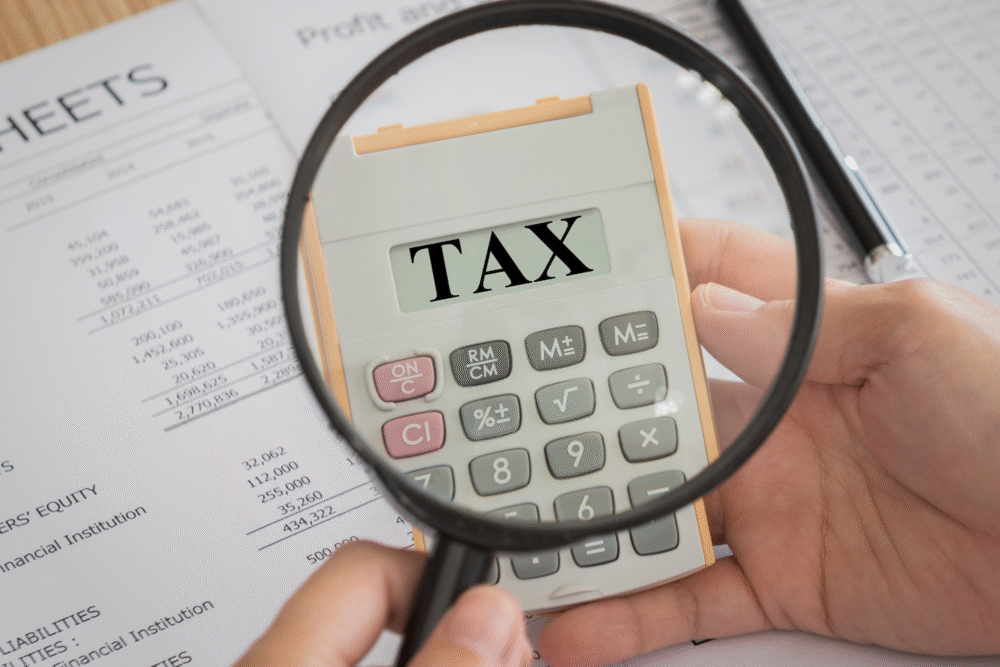Moving here isn’t just about the beaches—it’s the IRS perks nobody talks about.

The appeal of Puerto Rico has evolved beyond surf spots and tropical weather. For a certain type of American, it’s become one of the last legal tax shelters standing. Yes, it’s still the United States, but the tax code says otherwise.
Between local incentives and federal loopholes, Puerto Rico offers a stunning escape from the financial grind most high earners face. These aren’t small deductions—they’re structural advantages that can radically shift how much you owe and what you get to keep.
1. Residents can legally pay zero capital gains tax.

One of the biggest draws for mainland Americans is the potential to wipe out capital gains taxes entirely. Under Puerto Rico’s tax incentives, eligible residents who qualify for certain local programs can sell appreciated assets—stocks, crypto, even property—without owing the IRS or the local government. That’s not a delay or a deferral. That’s a flat-out exemption. As long as those gains were earned while living on the island and after meeting residency requirements, the difference in take-home profit can be staggering. For anyone used to losing a big slice to federal taxes, it feels like stepping into another economic reality.
2. Personal income tax rates are dramatically lower than the mainland.

Puerto Rico has its own tax code, and it’s built to be competitive. Instead of the usual federal income tax, residents pay only Puerto Rico’s local rates, which are often much lower. High earners who might be facing top-tier federal brackets elsewhere in the U.S. can find themselves paying far less overall. There’s a catch, of course: you have to become a bona fide resident, which means more than just renting a beachside condo. But for those who make the switch, the savings on W-2 income, self-employment, or business earnings can be substantial—and sometimes even transformative.
3. Some businesses pay just 4% corporate tax under local programs.

Through specific economic incentive acts (like Act 60), Puerto Rico offers a fixed 4% corporate tax rate for qualifying businesses. That’s not a typo. If you’re an entrepreneur or service provider exporting your services—think software development, consulting, marketing—you can apply for this status and slash your tax bill to a fraction of what it would be on the mainland. There’s a process to get approved, but once locked in, the long-term benefits are substantial. For remote workers and small businesses with portable income streams, this kind of rate is more than competitive—it’s almost irresistible.
4. There’s no federal income tax on Puerto Rico-sourced income.

As a U.S. territory, Puerto Rico has a unique status in the tax world. If you live there as a bona fide resident, you don’t pay federal income tax on income earned within Puerto Rico. That applies to salaries, business earnings, and even dividends, as long as they’re Puerto Rico-sourced. The key is proving residency and showing that your economic activity is rooted on the island. While you still pay local taxes, the absence of the federal layer creates a dramatic reduction in total obligations. That’s rare in any jurisdiction tied to the U.S. flag.
5. Qualified dividends can be taxed at a flat 0% rate.

For those receiving dividend income, Puerto Rico offers a tantalizing edge: under certain incentive acts, qualified dividends earned locally may be taxed at zero percent. Not deferred. Not reduced. Flat-out exempt. This kind of perk flips the script on traditional income strategies. While investors on the mainland might be balancing capital appreciation with qualified dividend tax planning, residents of Puerto Rico can simply sidestep the question. It’s a clean break that adds up fast over years of investment returns. And yes, it’s perfectly legal—as long as the dividend income originates locally and residency requirements are fully met.
6. Passive income can be largely tax-free with proper planning.

Royalties, rental income, and interest—normally, those streams attract a lot of attention from the IRS. But with Puerto Rico residency and smart structuring, passive income becomes a far less painful category. Depending on how the income is sourced and whether it qualifies under the local tax programs, it can be either significantly reduced or entirely exempt from local and federal taxation. The nuance is in the paperwork. But for digital creators, investors, and intellectual property holders, Puerto Rico becomes more than a lifestyle move—it’s a shelter that rewards thoughtful planning with recurring tax savings.
7. Estate and gift taxes are notably different for residents.

Unlike the mainland, Puerto Rico doesn’t impose its own estate or gift tax. And because bona fide residents aren’t subject to U.S. federal estate and gift taxes on Puerto Rico-sourced assets, the difference in generational wealth planning can be extraordinary. This isn’t just about saving money—it’s about legally protecting assets for heirs in ways that would be complex and costly elsewhere. Families who make the move with long-term strategy in mind can find Puerto Rico a surprising ally in legacy building. It’s one more way the island creates opportunities that reach well beyond sun and surf.
